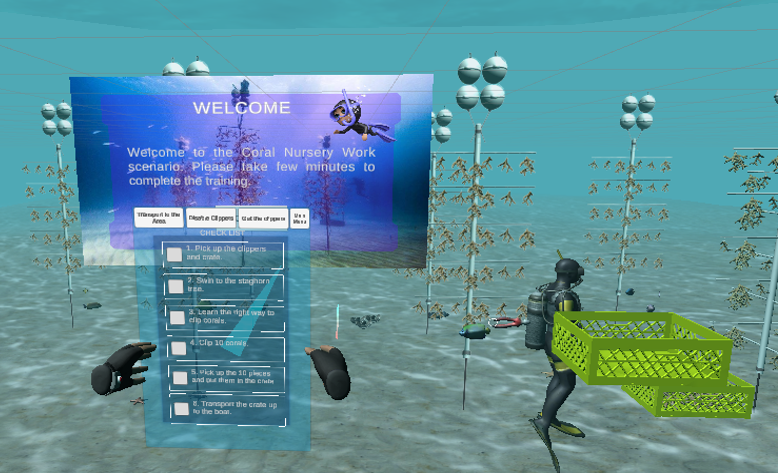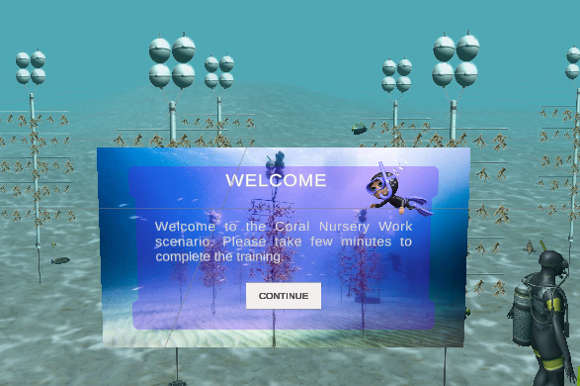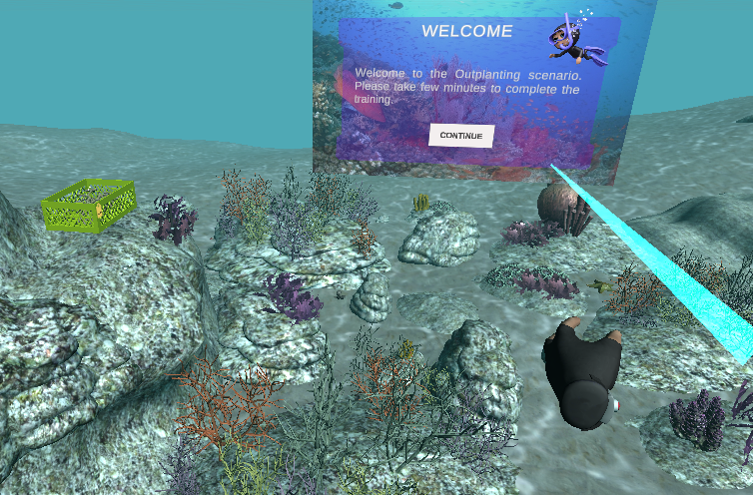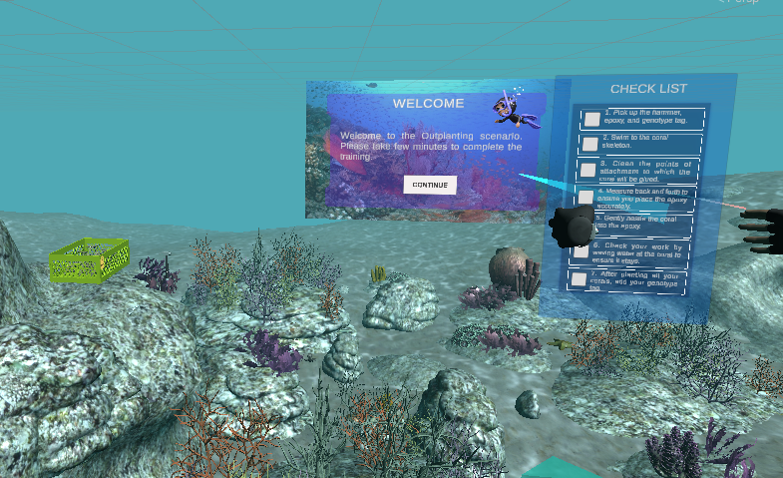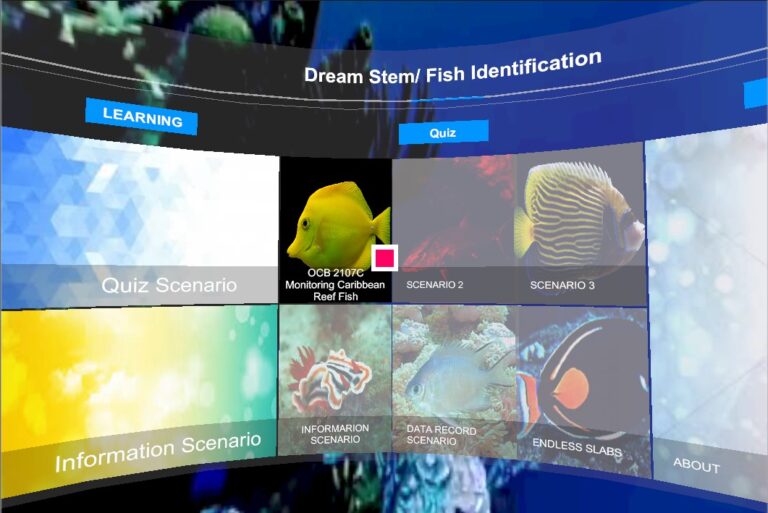CIVS Developed Underwater VR Lab Modules for an NSF-Funded STEM Project
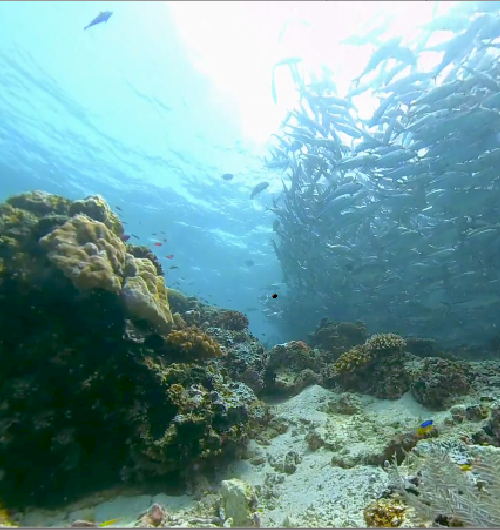
CIVS researchers and students have worked with The College of the Florida Keys staff and instructors to develop immersive underwater labs to enhance existing Marine Science and Technology courses through the five-year NSF-sponsored DREAM STEM project (Developing Reliable Educational Avenues to STEM Careers). The DREAM STEM project is part of NSF’s HSI program (Award #1928591) and is estimated to run through the end of 2024.
CIVS staff John Moreland (Senior Research Scientist) and Kyle Toth (CIVS Senior Research Engineer), and CIVS Visualization research students, including Iftequar Iqbal Mohammed and Cristina Cabascango in partnership with Patrick Rice, Chief Science & Research Officer, and NSF Principal Investigator at The College of the Florida Keys have developed and implemented two underwater VR lab modules for Marine Science and Technology courses.
The two underwater VR lab modules have separate focuses and purpose as described in the following:
- The first module is known as Coral Restoration Virtual Reality (CRVR). CRVR effectively recreates the intricate process of coral reef restoration within a virtual reality setting. This immersive experience allows users to don a VR headset and actively engage in the various steps and techniques necessary for coral reef restoration. Through CRVR, individuals can practice hands-on tasks such as identifying healthy coral specimens for propagation, safely fragmenting corals, and securely attaching them to underwater structures. This not only serves as a valuable training tool but also helps ensure that real-world coral restoration efforts are carried out with precision and minimal environmental impact.
- The second module, Reef Visual Census Virtual Reality (RVCVR), plays a vital role in the educational aspect of the DreamStem Project. RVCVR serves as a course evaluation tool, especially for students undergoing training in reef visual censuses. During these exercises, students are guided through a series of steps to document the species they encounter while conducting visual surveys of reefs. They must provide detailed specifications for each species observed. Subsequently, their recorded data is evaluated against an answer key, enabling students to receive prompt feedback and a clear performance assessment. RVCVR not only ensures that students grasp the critical skills required for effective reef monitoring but also enhances the overall learning experience.
Both modules have been implemented in classrooms in three different courses at The College of the Florida Keys, which have provided feedback for continuous improvements and final updates.
